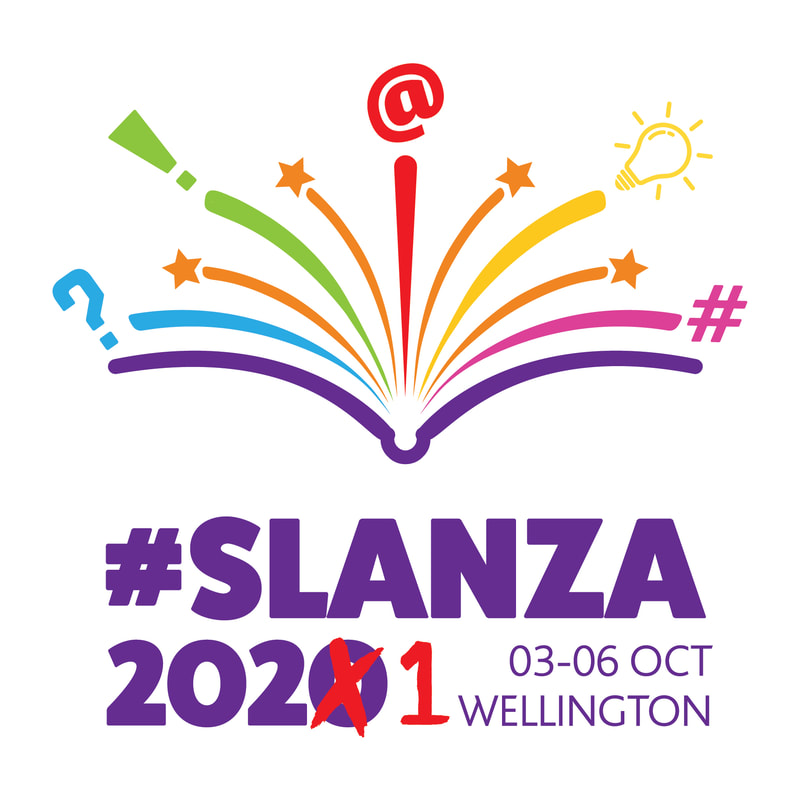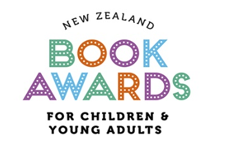|
Kia ora koutou katoa
As you know, the SLANZA Conference for 2020 has been transferred to next year. The new dates are Sunday 3 October until Wednesday 6 October, 2021. The venue (Samuel Marsden College) has been confirmed, and it looks likely that our keynote speakers and workshop presenters will all be available. We have started planning for a hybrid event so that we will be able to go ahead regardless of COVID alert levels. It also means that if you are unable to travel to Wellington, you will be able to register as a virtual attendee and hear the keynote speakers, some of the workshop speakers and still engage with the speakers and attendees via the virtual platform. Register now for an early-bird registration. Click here to register You can either pay now (using up that allocated budget) or early next year to still qualify for the cheaper rate. We will keep you up-to-date with developments and look forward to seeing you at this special event but keep an eye on the SLANZA website for updates http://www.slanza.org.nz/slanza-conference-2021.html
0 Comments
We are transforming the way Britannica School looks, so students can enjoy a modern learning experience that is even more accessible, personal and exciting!
We have kept all the popular features our users know and love, while making improvements like:
Find out more ------------------------------- About Britannica School As the go-to site for research—the core of any inquiry learning model--Britannica School offers thousands of curated and curriculum-relevant articles, images, videos, audio clips, primary sources, maps, research tools, recommended websites, and three unique, but connected, databases to meet every reading level. Free Access: Through EPIC, the Ministry of Education is bringing Britannica School to every New Zealand classroom. Your teachers and students can enjoy Britannica School free with your EPIC school login. Start your search today. The organisers of the New Zealand Book Awards for Children and Young Adults are calling for expressions of interest from members of the children’s literature community who may like to be considered as judges of the 2021 awards. Applications are now open to all those with suitable qualifications and experience, and will close on 30 October. A total of five judges will be appointed for the English language categories and will begin their reading in mid-December. The Wright Family Foundation Te Kura Pounamu Award, for books entirely written in te reo Māori, is judged by a separate panel appointed by Te Rōpū Whakahau, the national body representing Māori within the Library and Information profession in Aotearoa New Zealand. Nicola Legat, chair of the New Zealand Book Awards Trust, which governs the awards, says the Trust welcomes expressions of interest from both the children’s literature community and members of the public with relevant experience. “Our past panels have included authors, publishers, academics, reviewers, critics, bloggers, booksellers, teachers and librarians. It’s a big commitment but over the years our judges have told us how rewarding they have found it. After all, what could be more satisfying than becoming deeply involved in assessing the best New Zealand books of the year for young readers and celebrating the importance of books and reading?”. Convenor of the 2020 judges, poet, writer and bookseller Jane Arthur, says of the experience, “Being a judge involves taking an intensive, deep dive into one full year of local children's literature, and coming up for air a few months later with sharpened skills in critiquing and articulating what makes the best books great – and why others might miss the mark. It's a truly terrific, enriching experience and I can't recommend it more.” The English language judges will deliberate over what is expected to be at least 150 entries in five categories: Junior Fiction (the Wright Family Foundation Esther Glen Award), Young Adult Fiction, Non-Fiction (the Elsie Locke Award), Picture Book and Illustration (the Russell Clark Award). They will select up to five finalists in each, and also up to five Best First Book finalists, then a winner in each category. The call for entries in the 2021 New Zealand Book Awards for Children and Young Adults will go out to publishers on 18 November 2020. Finalists will be announced in early June 2021, and the awards ceremony is planned for early to mid-August in Wellington. Expressions of interest forms and background information on the judging process and judges’ responsibilities can be downloaded from the New Zealand Book Awards Trust website or supplied on request by emailing [email protected]. Applications must be submitted by 5pm on Friday 30 October, and should include a brief resume demonstrating the applicant’s experience for the judging role. The judging panel will be selected by the New Zealand Book Awards Trust, which comprises industry stakeholder representatives. The New Zealand Book Awards for Children and Young Adults are made possible through the generosity, commitment and vision of funders and sponsors Creative New Zealand, HELL Pizza, Wright Family Foundation, LIANZA, Wellington City Council and Nielsen Book. ENDS Link to more information on NZ Book Awards Trust website: http://www.nzbookawards.nz/new-zealand-book-awards-for-children-and-young-adults/news/  Hello all! The amazing SCIS team have created a free short course for new school library staff (and for those that would like a refresher). Focusing on collection curation and cataloguing, we will help you get started in organising the resource offerings of your library. We have created 7 SCIS Blog posts, each containing a lesson in managing your library collection and catalogue. Click on the links below and explore at your own pace. We are so pleased to take you on this journey! Lesson 1: Help! I’ve taken over a library. What do I do now? We’ll start slow, and take you through the basics of a library: what it is, and what it can be. Ideal for those of you who have just stepped into the role of librarian. But this is also a nice refresher, and a chance for those of you who have been working in a library for some time, to take a step back from your current practices and think about the basics. Lesson 2: Managing your collection – what does your library collect? Now we start to get into the juicy stuff! This lesson looks at the library collection policy and why it is so important. We cover sourcing and acquisition — building up your library collection — along with the necessary evils, otherwise known as weeding and stocktake. Lesson 3: Introduction to cataloguing – unleash your library collection This lesson dives right into the heart of cataloguing. We discuss why we need to follow cataloguing standards, what standards you’ll need to be aware of, and how to make standards work for your library. Lesson 4: Descriptive cataloguing – describing your collection and finding resource information We’ll start looking at the ways you can describe your library collection, and where you can find information on a particular item. We also look at how most people perform searches, and the important fields to consider when cataloguing. Lesson 5: Subject cataloguing and authority files – why it is important to keep control This lesson uncovers the benefits of controlled vocabularies. We also delve into authorities and authority files: what they are, and how they can make your collection more discoverable to staff and students. Lesson 6: Organising your collection –classification, Dewey and call numbers Here is where you can start to make your library work for you and your school. We discuss the importance of classification, describe the difference between full and abridged Dewey, and provide an overview of call numbers and genre classification. Lesson 7: The value of your library collection – now that I’ve set up my library, what’s next? Our final lesson ties everything together. We’ll look at how to evaluate and advocate your library, suggest activities for engagement and networking, and touch on creating efficiencies. In a nutshell, we discuss how you can make the most of your time to serve the needs of your school. Thank you and enjoy! PUBLISHED BY SCIS (Schools Catalogue Information Service) was created with the aim of providing schools with access to a database of consistent catalogue records created according to agreed national standards, in order to reduce the cost and duplication of effort of cataloguing resources in schools. Since its inception, SCIS has been responsible for improving the quality and consistency of cataloguing materials for schools. |
Categories
All
Archives
July 2024
|




 RSS Feed
RSS Feed